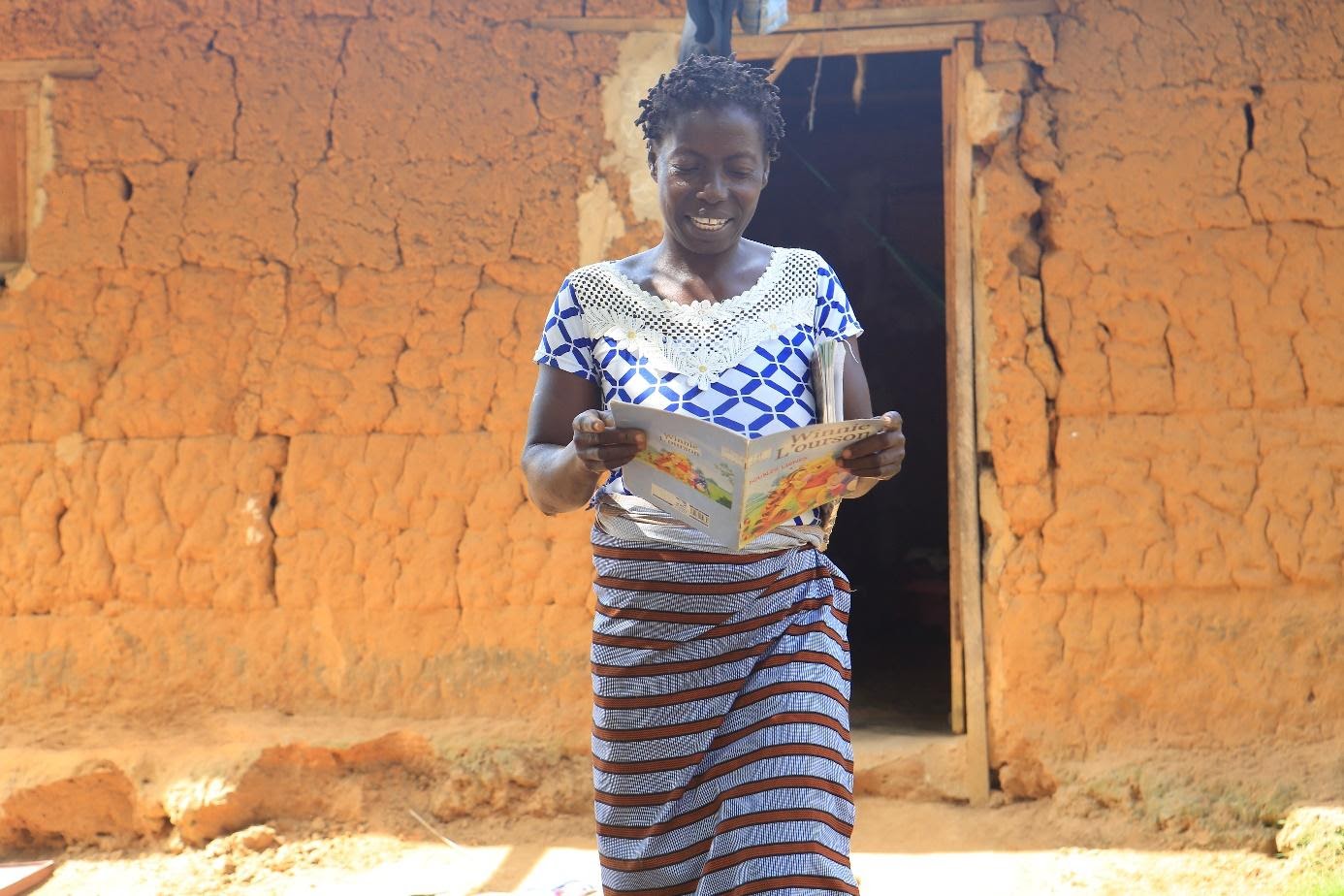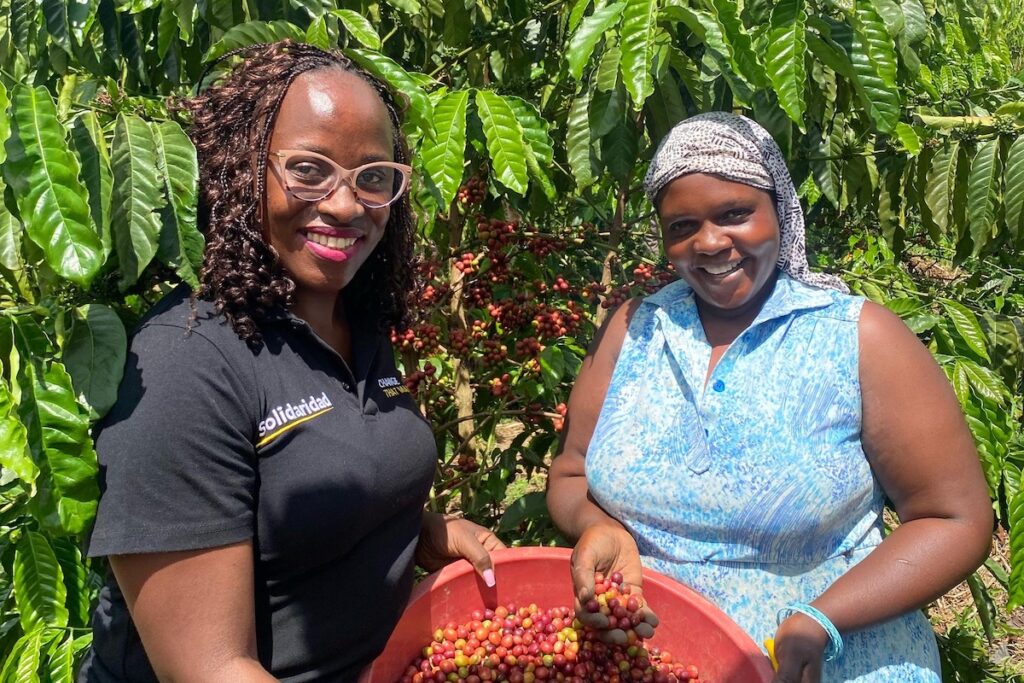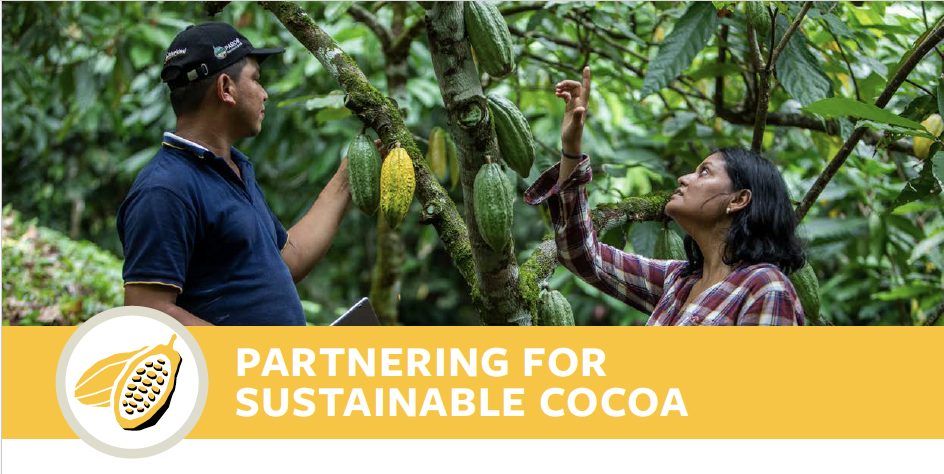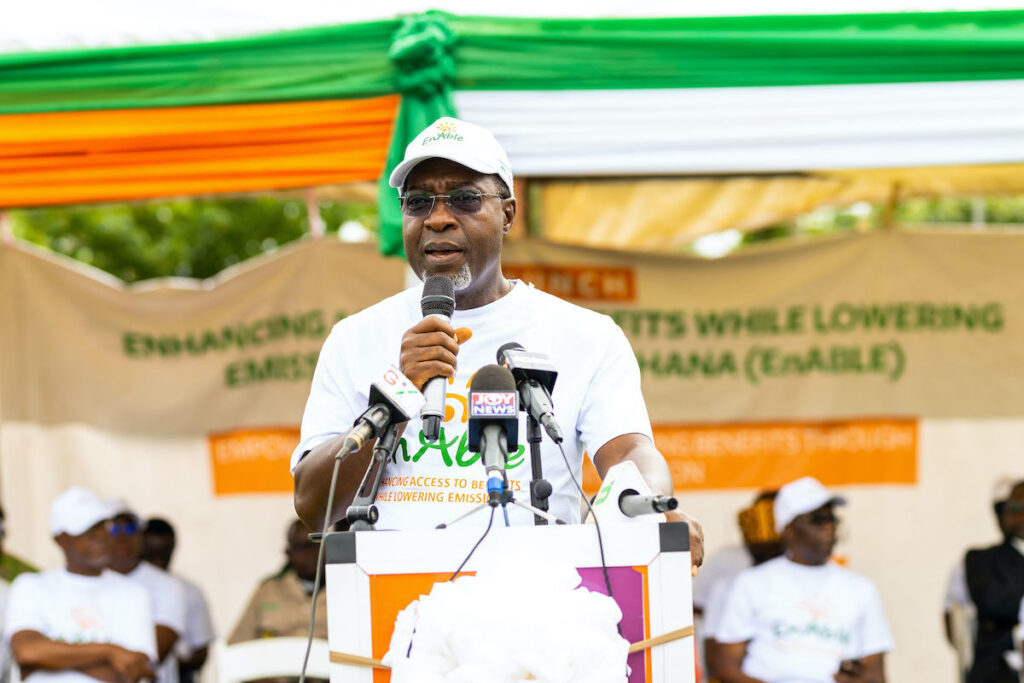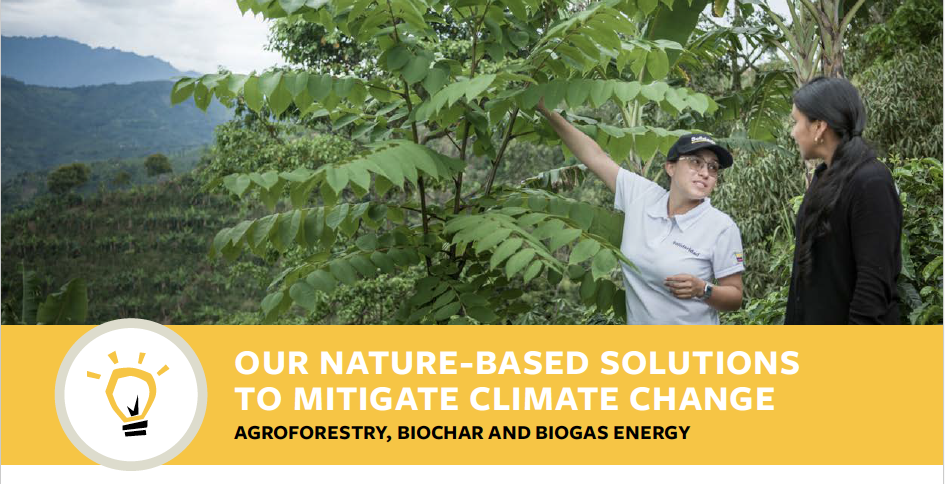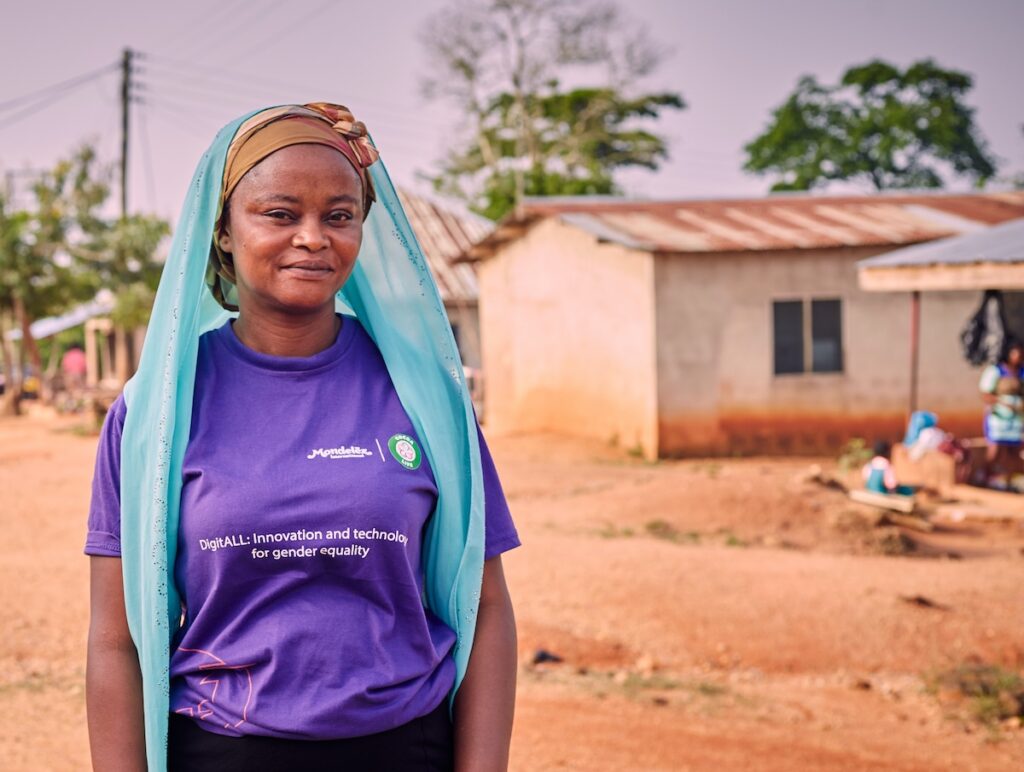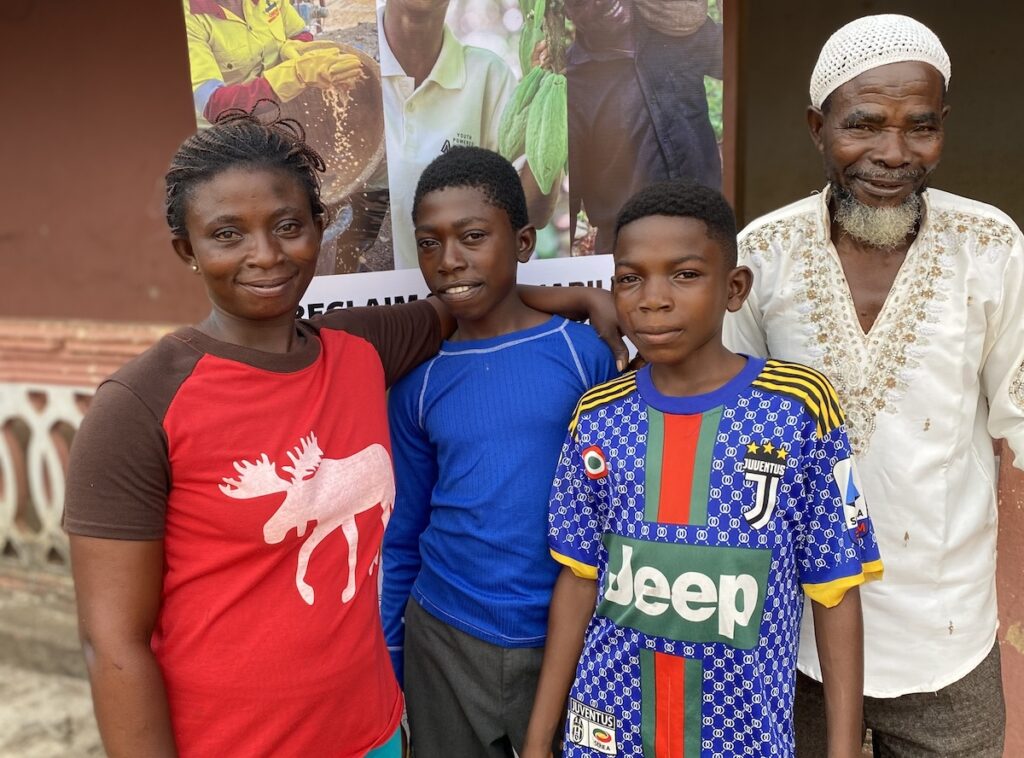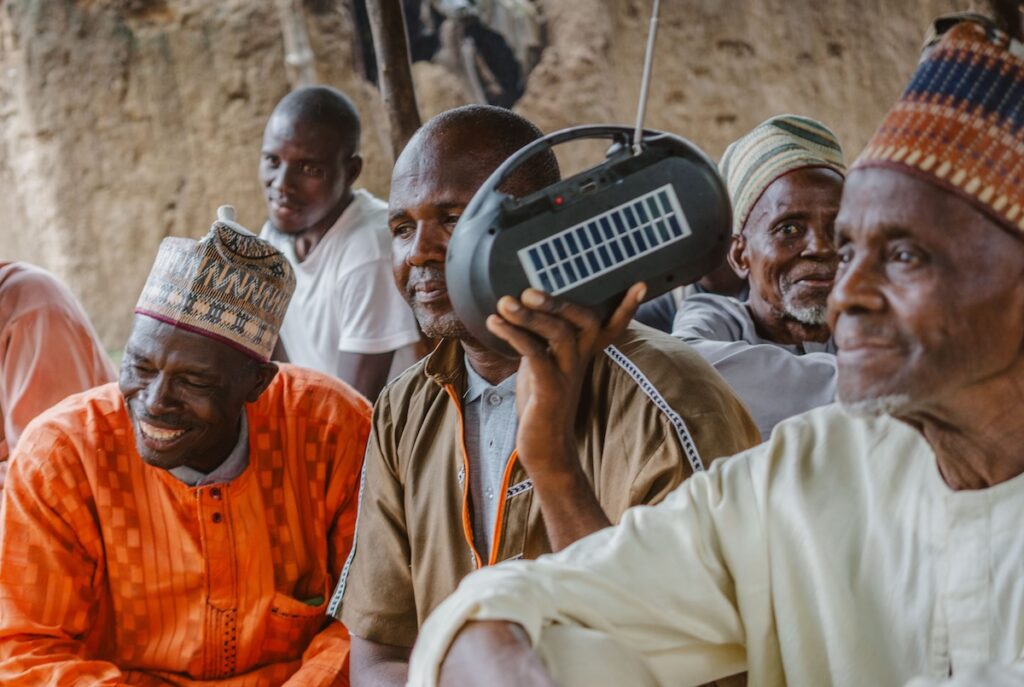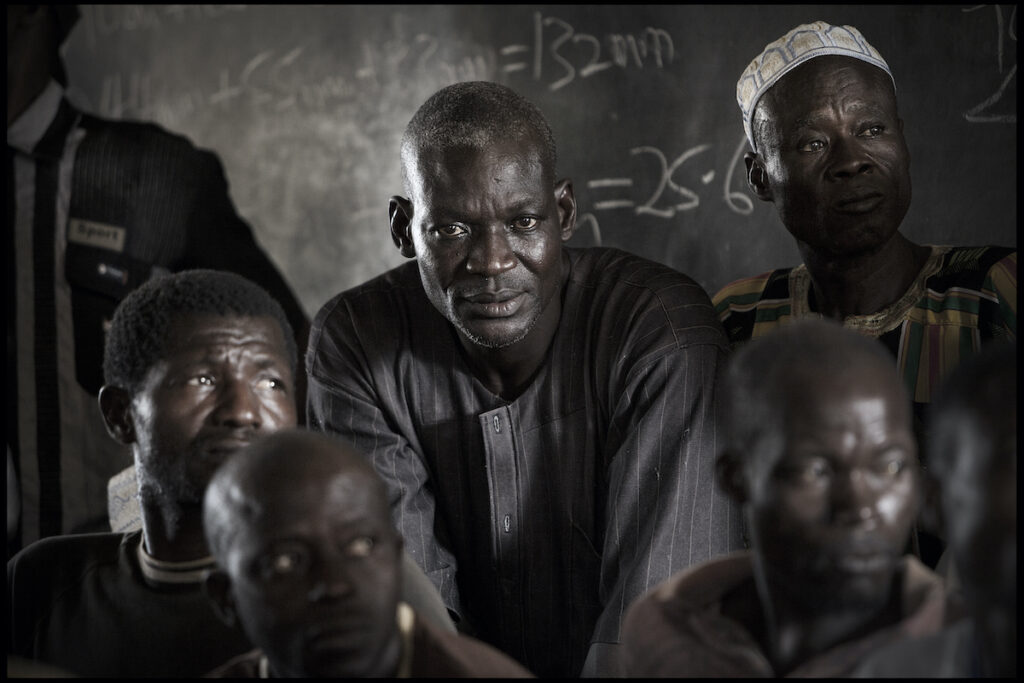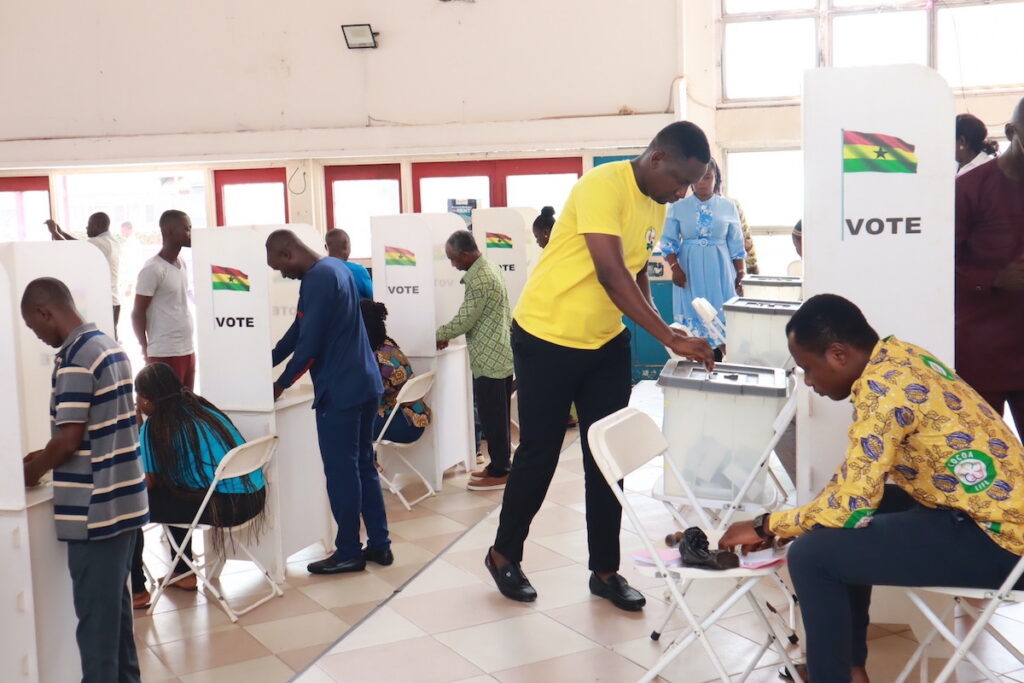With only about 40 percent of Ivorian women (aged 15 years and above) educated, illiteracy remains a challenge for many women living in rural areas where school facilities as well as social and economic opportunities are limited, and compounded by gender stereotyping.
In Kouassi-kpenkro, a major cocoa-producing community in Divo, in the south-west region of Cote d’Ivoire, the situation is no different. The majority of the women here are housewives, but also farmers, who produce cocoa or other food crops, and struggle to read or write.
Koffi Brou Odette, a 40-year-old mother of 10, said her lack of formal education, like many of her counterparts, has made it challenging to support her children’s education.
Because I cannot read or write, I am unable to guide my children through their school assignments. I have had to depend on other children in the community for help. This does not give me the comfort I would like to have as a mother.
Koffi Brou Odette
Since 2017, Solidaridad has been changing the narrative by supporting women in Kouassi-kpenkro and other cocoa-growing communities with basic literacy training. This was done under the project, Transforming Education in Cocoa Communities (TRECC), which sought to create an ecosystem to transform education in cocoa-growing communities in Cote d’Ivoire, with funding from Mondelez International and Jacobs Foundation.
The training focused on basic reading, writing and counting skills that equip farmers to understand, communicate and apply fundamental instructions and guidance related to their farming business. It was also designed to make them competent in providing basic literacy support to their families and protect children from harmful labour practices.
Using Village Savings and Loan Association schemes as an entry point, the project also promoted financial and social inclusion of women and mobilized them to fully benefit from the interventions and engender a close supervision of their children’s education.
Transforming lives through literacy one person at a time
“During our VSLA activities they introduced us to a literacy class that was soon to begin. Immediately, I knew this was for me. I loved the interactive session that included games and drawings. Even though I struggled with my first attempt at reading and writing, I did not give up. ,” says Koffi, who is also the president of a VSLA group with more than 100 members.
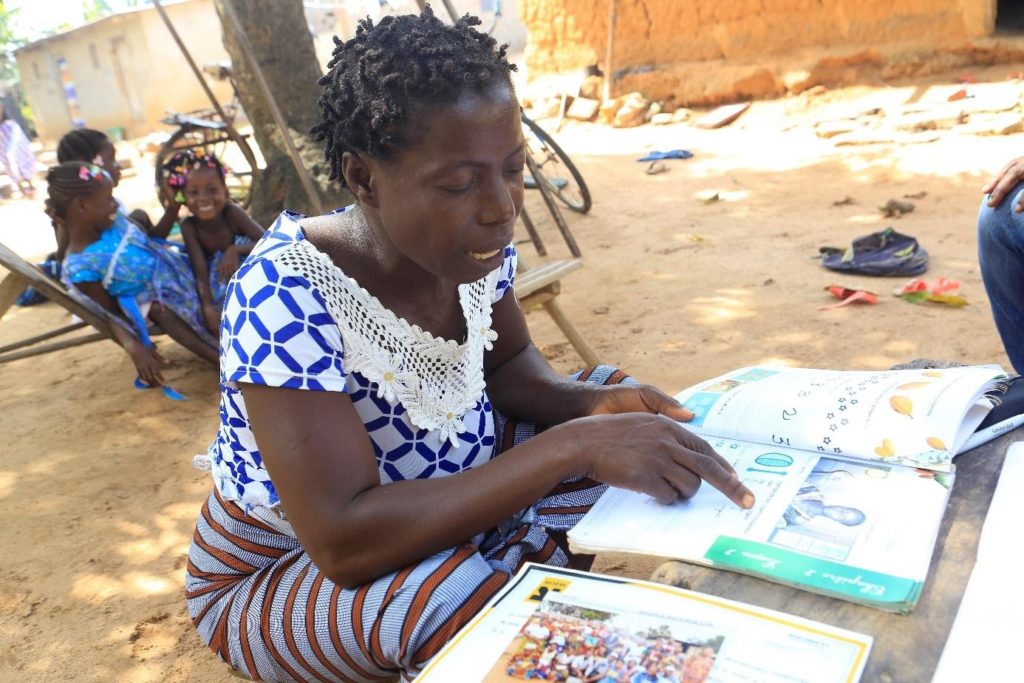
After almost five months of training, with twice-a-week classroom sessions, Koffi now reads and writes with no hesitation, and can now keep records of activities on her cocoa farm.
With a loan she acquired through the Village Savings and Loan Association and incentivized by the literacy training, Koffi is currently running a retail business where she sells stationery such as textbooks, pens, exercise books and pencils in her community. She says she easily reads and recognizes books requested by her customers by their titles.
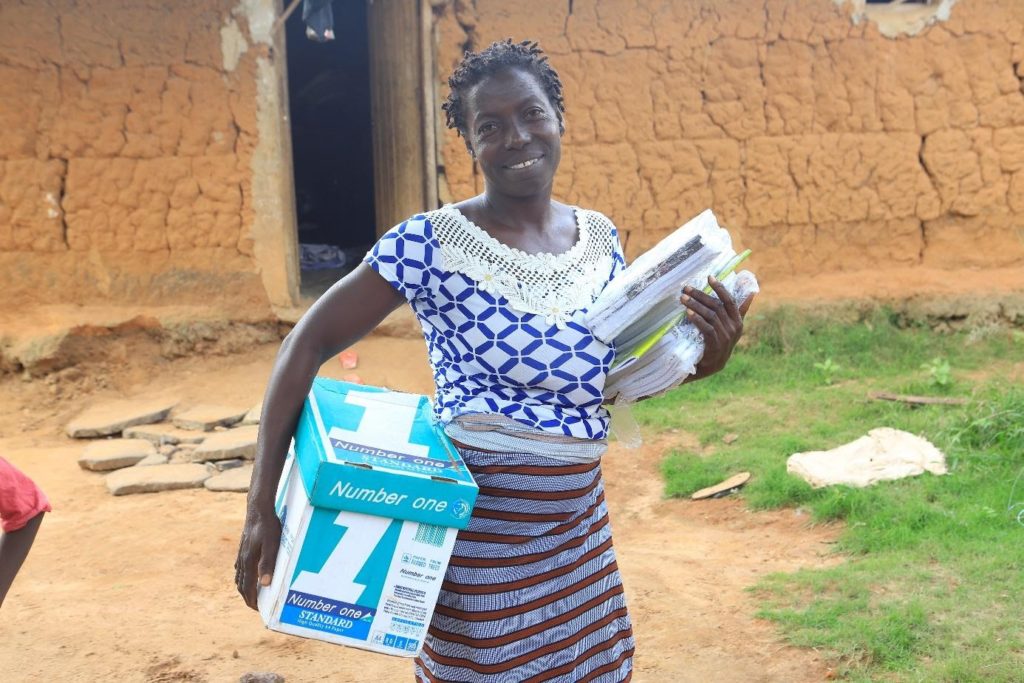
This project has helped me tremendously. Now, I feel competent as a mother to support my children’s education and provide for their basic livelihood needs with the returns from my business.
Koffi Brou Odette
She remarks, “I know the same is true for my colleagues in the ÊTRA-YOA-RHIN (which means ‘Let’s be determined) VSLA group. Indeed, we are grateful to Solidaridad for supporting us this way.”
So far, Solidaridad has successfully trained 750 women in 65 communities in basic literacy under the TRECC project, which ended in 2020, Solidaridad continues to look for opportunities to work with partners to scale up basic literacy in various cocoa-producing communities to empower women as part of its efforts to reclaim sustainability.

